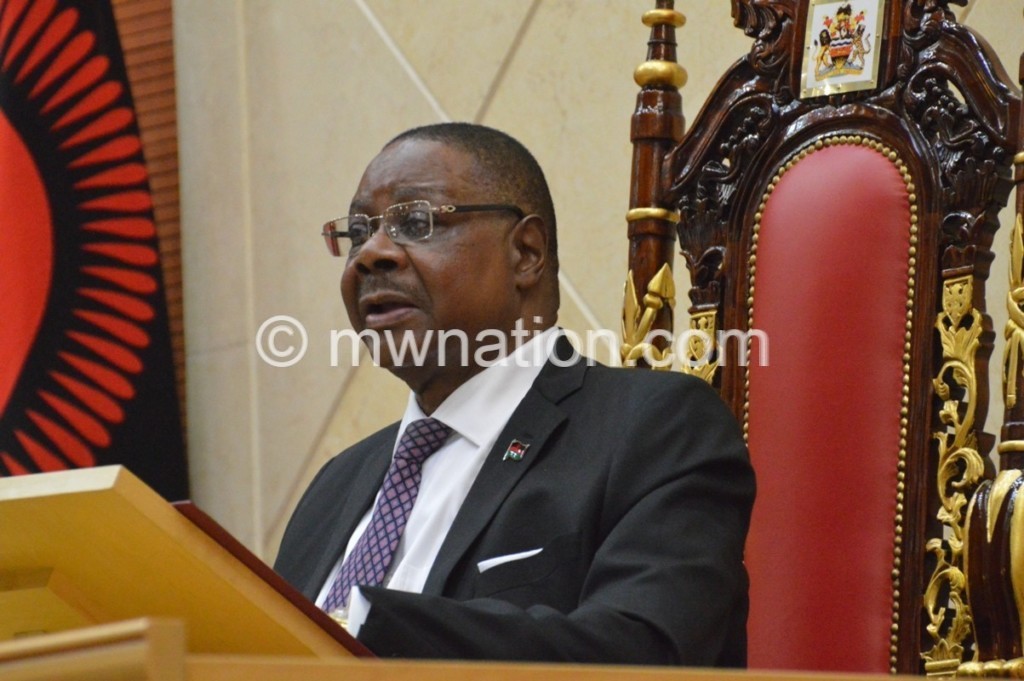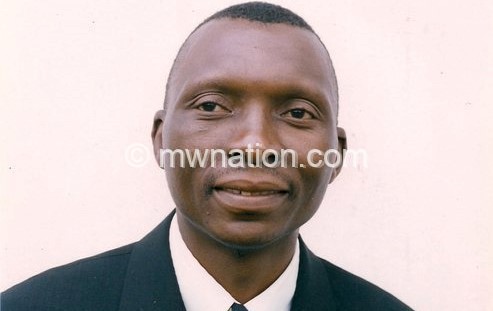APM’s state of crisis
- Will current elections fallout append national agenda?
President Peter Mutharika will this Friday deliver his State of the Nation Address (Sona) amid a crisis surrounding his legitimacy that could hamstring his multi-billion dollar agenda.
Facing a divided Parliament—torn mostly among his Democratic Progressive Party (DPP), Malawi Congress Party (MCP) and a powerful bloc of independents—Mutharika’s address may not just need to provide a roadmap for the country based on his party’s manifesto, but also from his rivals’ policy proposals.

Accommodating his detractors’ ideas—especially those from MCP’s Lazarus Chakwera and UTM Party’s Saulos Chilima—into his broader agenda could help build political capital for a President who won just 38.5 percent of the votes. The results mean that at least 60 percent of the electorate do not fully agree with his vision for Malawi.
An even bigger task for the President fighting to save his fresh presidency in courts of both law and public opinion, will be signalling in his speech of how the country can dig itself out of the current post election dungeon, according to a political analyst Ernest Thindwa of the University of Malawi.
The President may also need to frame how he wants Malawians and the international community to view him in the context of the post-election disputes and weak governing mandate in a country facing a cocktail of challenges that are deepening poverty.

Mutharika is presiding over timid economic growth rates too low to make an impact towards poverty levels; a shrinking labour market in a population dominated by youths; an unstable energy environment that is speeding up the country’s de-industrialisation; institutionalised fraud and corruption that deprives taxpayers 30 percent of the national budget and a collapsing social service delivery architecture torturing citizens in crucial sectors such as health, education and agriculture.
Thus, even as he moulds a narrative in the Sona of a man in charge while fending off legal challenges from Chakwera and Chilima as well as protests from civil society groups, economic commentator Gilbert Kachamba wants the President to show that he will translate his lofty campaign promises into actionable policy prescriptions.
The President has promised to grow the economy from the current four percent to at least seven percent in 2019 to 2024.
While the International Monetary Fund (IMF) in March revised upwards Malawi’s growth rate for 2019 to five percent from its earlier forecast of 4.1 percent on account of unexpected boost in agricultural output and electricity, that expansion is well below the seven percent target that the Mutharika administration has been dangling.
If the fund’s gross domestic product (GDP) forecast holds as it has mostly done in the past, then it means Mutharika’s promises to more than double the country’s GDP per capita to $1 105 and increase employment by 22.5 percent is a near impossible task.
And with the current political uncertainty that has helped to nudge the Malawi kwacha to head south and give businesses a pause before injecting capital, among other unintended consequences, the President’s promises of scaling up investments by $3.5 billion between 2019 and 2024—with 16 percent projected to be achieved in 2019—appear far-fetched.
That also goes for the plan to raise revenue and grants to an average of 30 percent GDP and achieving total government expenditure to GDP of 25 percent on average.
Economists The Nation talked to yesterday were sceptical that the current environment and policy approach can turn around the economy in the manner the Mutharika administration wants everyone to believe.
University of Malawi’s economics professor Ben Kaluwa said there are too many “blockages” to achieving what he called an economic miracle for Malawi.
“What the DPP is promising is beautiful on paper, but experience has shown that most of the public funds are being put to waste. At the same time, we seem not to be doing things right by attracting more investors who can create jobs and help grow the economy.
“While the ruling party is talking of unleashing $9 billion direct investment by the private sector into the economy, industry is shrinking due, among others, to a stringent tax regime. Government needs to make its policies consistent,” said the professor who teaches at Chancellor College in Zomba.
It is this scepticism and concerns that Mutharika may wish to address by clarifying how the goals will be achieved, according to Kachamba.
He said the Sona is an opportunity for President Mutharika to demonstrate sound judgement and vision by showing a specific roadmap for the country’s economic recovery.
“The President must assure Malawians how he will deal with rampant corruption, graft and theft of public resources. The economy cannot grow, let alone be turned into a middle income economy when these vices are still on the rise.
“Besides, no meaningful investors can come to the country without an assurance of a strong energy base. And ours is still an agro-based economy where we mostly export raw materials that fetch low prices,” Kachamba said.
But given that the Sona is also a speech that sets the political tone, the President might do well to strike the right cord to help the country move past the current dissension across the country, according to Thindwa.
This is because, he said, the ongoing post-election conflict could burn the bridge connecting electoral promises and their actualisation.
Said Thindwa: “The biggest expectation that people have from the President’s [Sona] is to come out clearly on how he can achieve country unity that is now at the lowest ebb.
“In my view, the President needs to accept that there is something very wrong with our electoral laws that leaves people more divided. We will all be very disappointed if he does not prescribe how the roots of this discord can be dealt with.”





